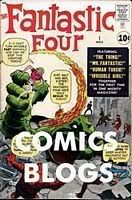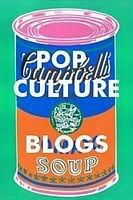BOOKS: The Colorado Kid
You know, sometimes when I write stuff here, I wonder what it would be like if the person I was writing about were to stumble across my blog. I don't want to hurt anyone's feelings. It makes me feel like I should stick to the blandest and most non-judgmental reviews I possibly can.
That said: Stephen King's The Colorado Kid is a pile of horse shit.
Hey, I gotta be me.
This book has no reason to exist. None whatsoever. As the Onion might put it, it's the least essential book I've ever read. As King himself says (via his characters) over and over again throughout the book, there's no story. And how right he is. It's a book of two characters telling a story, which is uninteresting and unnecessary enough itself, but this non-story they tell is boring, pointless, and completely devoid of any need to have been told.
Here's what they tell: 25 years ago, a man's body was found outside a small Maine island town -- the Colorado Kid, as he came to be known. It's page 50 of the 178 page text, by the way, before we get even this much, the most important part of an unimportant story. The preamble has all been about the two old newspaper men testing their young female intern's intelligence with inane questions, and patting her head when she gets something right, while she alternately beams, flushes, or shivers with pleasure at the condescending approbation of the old bores. (Sample line: "Stephanie thought that she loved these two old buzzards, she really did.")
So, an unidentified man's body is found. Who cares? Where's something to interest me in the dead guy? Nowhere. He's just there, and I'm supposed to care because the two old men care. That's not nearly enough. It's not anything, really.
On page 127, we finally get a tidbit of information that's meant to intrigue: the dead man had travelled from Colorado to Maine in an unusually short period of time the day before he died. And when I tell you that's it, I mean that's it. That is the entire story, right there. The rest of this ridiculously bloated book is the two old men filling in details and making conjectures, or having their intern do it for them.
The old men are condescending in the extreme, but even more galling to me was King's condescension toward the reader. He uses the intern to artificially inflate the emotions of the story -- above and beyond her constant, devout attention to every word that tumbles from their lips as though it were a golden nugget of wisdom. "This part's rather creepy," she says at one point, as though trying to convince the reader of that fact. (If that was indeed King's intent, he fails.) Or, when the old men quiz her on how they found out the man was from Colorado by his pack of cigarettes (emphasis King's):
"The tax-stamp!" she nearly shrieked. "There's a state tax-stamp on the bottom of every pack!"First of all, you can cram your applause, you patronizing pricks. Second, her overreaction is nothing more than a transparent attempt to inject excitement into a story that has none. Her answer is hardly earth-shattering, nor thrilling to the point of near-hysterical outburst. It's just another dull clue in the dull story.
They both applauded her, gently but sincerely.
To me, a more relevant passage is King's clumsy attempt to inject mood and depth to the story:
"How long do you think it takes a man to choke to death on a piece of meat, and then be dead forever?""Hollow self-importance." That sounds about right to me. It's almost like King is mocking himself, though I think that's giving him credit for too much awareness this time out.
None of them had an answer to that. On the reach, some rich summer man's yacht tooted with hollow self-importance as it approached the Tinnock town dock.
The cover asks, "Would She Learn the Dead Man's SECRET?" Answer: no. Nor do we. The mystery of how the man came to be in Maine is unresolved at the end. And I wouldn't have minded that -- let me be very clear: I would not have minded, I wouldn't have questioned for one second the validity of leaving the mystery unsolved, if the mystery hadn't been so thoroughly uninvolving. I never cared about the dead man. I never cared why he died (he choked on some food, but the old men want to believe -- and King wants us to believe -- there's more to it than that), I never cared about the old storytellers, I never cared about their needy, slavishly obedient intern and her responses to their frequent tests. I never cared about anyone or anything in this book.
This book actually angers me for having wasted my time so blatantly. If it had been one of King's usual 8,000-page tomes, I'd have quit after 4 chapters. But since it was under 200 pages, I decided to gut it out. And I still lament the brief time I spent mired in every one of its worthless pages.





















